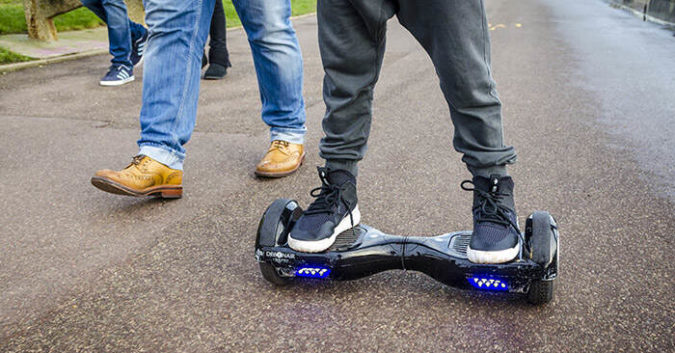So-called hoverboards were the hot new gadget of the 2015 holiday-shopping season, but after many reports of explosions and severe fires, parents around the world may be regretting their decisions to buy the highly dangerous toy for their children.
Known informally as hoverboards, and more technically as self-balancing scooters, these futuristic devices are 2-wheeled, battery-powered platforms that can be steered with the feet alone.
There are no "go-to" companies when buying a hoverboard because the product and technology are fairly new. As a result, there are dozens and dozens of new and unknown companies selling their own versions of the product both online and in retail outlets across the world. Some of these boards, especially those manufactured overseas and sold at greatly discounted prices, are made poorly and with almost no oversight whatsoever.
Buyer Beware
Perhaps due to the lack of oversight during manufacturing, or from the lithium ion battery which is prone to overheating, devastating hoverboard incidents seem to be cropping up day after day.
Homes from Lafitte, Louisiana to Strathmore, Australia have been severely damaged or nearly burnt down by combusting hoverboards. In many cases, the boards caught fire while charging for only 30-40 minutes. In some instances, the boards have ignited while users were riding them.
The problem is so bad that most international and U.S airlines have banned the device from airplanes. Australia is currently seeking to impose a nationwide ban on all hoverboards because of their risk factor.
Hoverboard Manufacturers Aren’t Stepping up to Ensure Product Safety
While the problem is severe and undeniable, hoverboard manufacturers are trying to look the other way in an attempt to avoid blame. Swagway, the company responsible for damaging a family’s home in Lafitte, Louisiana refused to comment on or acknowledge its product’s defects, but did publish a statement on its website indirectly denying the faultiness of its product: “…we don’t ever compromise when it comes to using the highest quality parts.”
Recently, a suit was filed against the company citing that neither Swagway, nor Modell’s – the department store where the board was purchased – issued any warnings about a fire hazard.
Though Swagway is not generally considered a bottom-of-the-barrel hoverboard brand, in light of recent events it is clear that the product has serious flaws. Many other electronic devices, such as common cellphones, are made with similar components to a hoverboard and are charged regularly and used without exploding. More likely, hoverboard manufacturers rushed to meet the holiday demand, and in their haste, churned out an inferior and potentially life-threatening product.
Be Safe, Not Sorry
While some news broadcasts have suggested that spending more on a hoverboard may be the best way to safeguard against health hazards, the truth is that any quickly assembled product, regardless of its price tag, is a risk. This risk will continue to threaten families around the world until manufacturers spend the time and money to use better and, more importantly, safer materials.
